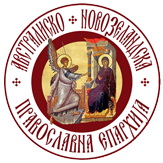Why do we call our priests “father,” when Jesus said in Matthew 23:9, “Do not call anyone on earth your father”?
A. Our Lord was not speaking literally in Matthew 23:9; rather the context shows that His true aim was to put down the pride and arrogance of the scribes and Pharisees.
I. Our Lord was not speaking literally in Matthew 23:9.
A. If the statement, “Do not call anyone on earth your father,” is to be taken literally, it would mean that natural fathers of the founders of cities or countries should not be called “father” either. But all Christians without reservation call their natural fathers “father” and George Washington the “father” of the United States. This shows that this statement cannot be taken literally, but must be interpreted.
B. Many times in the Bible men are called “father.”
- 2 Kings 2:12 – When Elijah was taken to haven in a chariot of fire, his follower Elisha cried out: “My father, my father…”
- Luke 16:24, 25 – Our Lord, in telling the parable about the rich man and Lazarus, put these words into the mouth of the rich man: “Father Abraham, have mercy on me.” Abraham did not reply, “Don’t you know that no man on earth is to be called ‘father’?” No, he said: “Son, remember …”
- Acts 7:2 – Stephen addressed the court of the high priest, saying: “Brethren and fathers, listen…”
- Acts 22:1 – Paul began his address to a mob in Jerusalem by saying: “Brethren and fathers, hear my defence…”
- 1 Corinthians 4:15 – Paul referred to himself as the spiritual father of the church in Corinth: “For though you might have ten thousand instructors in Christ, yet you do not have many fathers; for in Christ Jesus I have begotten you through the gospel.”
- 1 Corinthians 10:1 – Paul called his spiritual ancestors “fathers”: “Moreover, brethren, I do not want you to be unaware that all our fathers were under the cloud…”
- Ephesians 6:4 and Colossians 3:21 – Paul addressed natural fathers, saying: “Fathers, do not provoke your children…”
c. If Matthew 23:9 is to be taken literally, than so should Matthew 23:10 (or Matthew 23:8), which reads, “Do not be called teachers.” Yet often the same Christians who believe they should not call anyone “father” will not hesitate to call someone “teacher.” Some Protestant pastors are even officially called “Doctor,” which is simply the Latin word for “teacher.” If this is permissible, then it should also be appropriate to call a pastor or a priest “father” in the right way.
Conclusion: The normal usage of the terms “father” and “teacher” makes it clear that our Lord did not mean us to take His statement in Matthew 23:9 in the wooden, literal sense. Moreover, we should not think we know more about what Jesus meant than did St. Paul, who himself did not hesitate to use term “father” appropriately.
II. The context of the statement in Matthew 23:9 shows our Lord’s true aim was to put down the pride and arrogance of the scribes and Pharisees.
a. Jesus described the attitude of the scribes and Pharisees, to whom He was referring, in this way:
- Matthew 23:5 – “all their works they do to be seen by men.”
- Matthew 23:5 – “They make their phylacteries broad and enlarge the borders of their garments.”
- Matthew 23:6 – “They love the best places at feasts, the best seats in the synagogues…”
- Matthew 23:7 – “[They love] greetings in the marketplaces …”
- Matthew 23:7 – “[They love] to be called by men, ‘Rabbi, Rabbi.’ “
b. It is in response to this proud attitude that our Lord then said: “But you, do not be called ‘Rabbi’; for One is your Teacher, the Christ, and you are all brethren. Do not call anyone on earth your father; for One is your Father, He who is in heaven. And do not be called teachers; for One is your Teacher, the Christ” (Matthew 23:8-10).
c. Philip Schaff, the famous Protestant scholar of the nineteenth century, commented on Matthew 23:9 this way: “It is plain, therefore, that the Savior prohibits not so much the titles themselves, as the spirit of pride and ambition which covets and abuses them, the haughty spirit which would domineer over inferiors, and also the servile spirit which would basely cringe to superiors”
Conclusion: Our Lord spoke of Christian humility by saying: “But he who is greatest among you shall be your servant. And whoever exalts himself will be abased, and he who humbles himself will be exalted” (Matthew 23:11, 12). Here He showed how He meant His words to be understood and interpreted.
In summary, we can say that it is clear our Lord’s words in Matthew 23:9 were not meant to be taken strictly and literally, but rather as a condemnation of pride and as an encouragement toward Christian humility. It is in this spirit, then, that the Church has followed the example of St. Paul (and others) and has not hesitated to call those who are spiritual fathers “father.” This is not a title of exaltation, but simply an expression of warmth and dignity, recognizing that those so called are properly imitating and mirroring the true Fatherhood of God, from whom come all good things.
father Marc Dunaway















